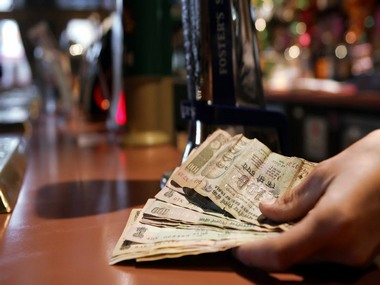**Washington:**Finance Minister PranabMukherjee has said that intervention in the currency marketwould be considered at an appropriate stage and he has
discussed with Reserve Bank Governor D Subbarao the situationcreated by the depreciating rupee in the past few days.
[caption id=“attachment_91526” align=“alignleft” width=“380” caption=“RBI Deputy Governor Subir Gokarn had earlier said thatthere was no move of intervention in the currency market at this time.Reuters”]  [/caption]
“I had a discussion with the RBI Governor as he is here,“Mukherjee told a group of Indian reporters here. The finance minister and RBI Governor are here to attend the annualmeetings of the Indian Monetary Fund and the World Bank.
Mukherjee said the government was closely monitoring thesituation and intervention in the currency market would beconsidered whenever necessary.
“We will watch the situation for some time and as andwhen intervention would be required that will be considered atthat stage,” Mukherjee said in response to a question.
In order to check high volatility in local currencyvalue, Central banks world over intervene in markets through buying or selling of foreign currencies, as required.This week alone, the rupee lost 231 paise, or 4.89%, against the US dollar.
On Friday, rupee closed at 49.43 per dollar after fallingto 49.90 per dollar. The sharp depreciation in rupees has beenmainly attributed to rising demand for dollars from foreigninstitutional investors (FIIs) and oil companies.
RBI Deputy Governor Subir Gokarn had earlier said thatthere was no move of intervention in the currency market at this time.“We, at this point, do not see any intervention from arate targeting view point. That is something that wouldreflect a change in policy stance, which we are not doing atthis point,” Gokarn had said.
“If we do intervene at all, it will be with a very narrowobjective of smoothening what might be a very volatile marketsituation, nothing beyond that,” Gokarn had said.
Meanwhile, responding to questions on price rise,Mukherjee said substantial inflationary pressure was therebecause of demand.“There is a demand side pressure. There is no doubt aboutit, because we had to resort to huge fiscal expansion fromDecember 2008 to first quarter of 2009… stimulus package (to
deal with the global financial crisis was) almost threepercent of GDP”, he said.
The fiscal expansion had its impact on fiscal deficitwhich went as high as 6.6% of the GDP from 2.5 %, he said.As regards food inflation, he said, it was substantial
due to the constraints on the supply side. “Therefore, we haveto remove those supply side constraints. We have taken someshort and medium term steps,” he added.
The headline inflation is nearing 10% despite theReserve Bank raising key policy rates for 12 times since March2010 to contain price rise.
PTI


)
)
)
)
)
)
)
)
)



